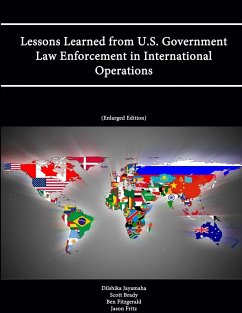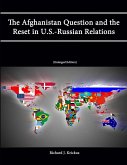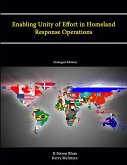Law enforcement (LE) aspects have been an increasingly prominent feature within the U.S. Government's (USG's) commitment to international operations. Beyond the deployment of police personnel to interim policing missions, LE agencies may also be involved in international operations to enforce U.S. domestic law; for capacity building; and/or in support of U.S. military forces. This analysis examines lessons from three operations: Panama (1989-99), Colombia (1989-Present), and Kosovo (1998-Present). This analysis was supported by an extensive range of interviews and in-country field research in Colombia and Kosovo. The lessons learned were developed and validated in a series of workshops with subject matter experts. The results show the pervasive and complex role that law enforcement and related issues have played in contemporary international operations. Despite the unique circumstances and history of each operation, there were key findings that are common to all operations considered..








